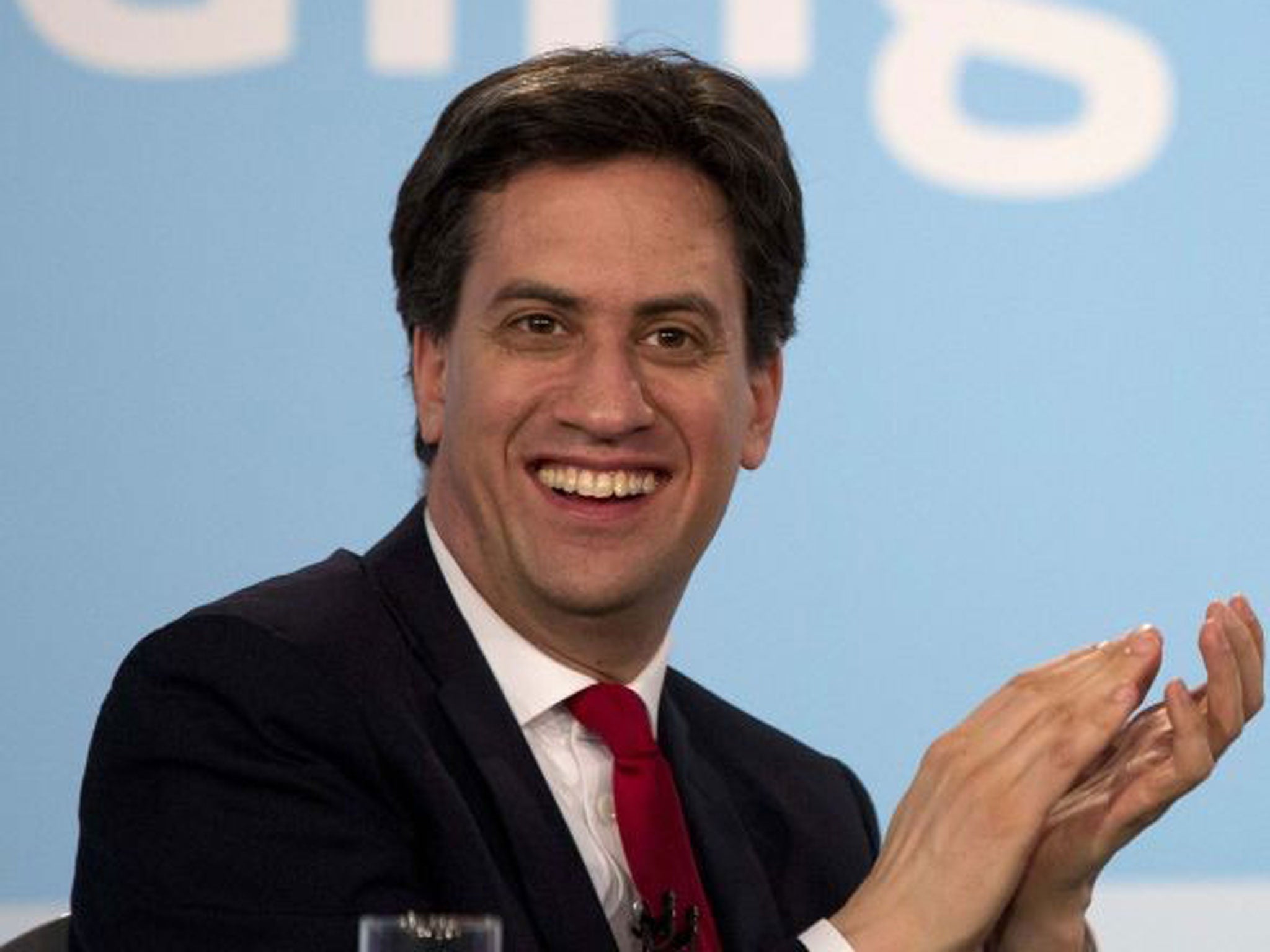Ed Miliband’s Labour Party reforms are good news for all


If Ed Miliband’s reform has cut the power of the union bosses in the Labour Party, why have they agreed to it? That is the question asked by Conservatives, who think that there must be a catch to the rule changes approved yesterday.
They are wrong. This is a historic change that will improve democracy, and not just in the Labour Party. It will make the relationship between Labour and the unions honest at last, and cut the power of union general secretaries in Labour leadership elections straight away, and in policy-making over time.
Why, then, have the leaders of the big unions agreed to it? For the same reason MPs and lords voted for the original Self-denying Ordinance in 1645: to enable the fight to be taken more effectively to the enemy. Members of the Long Parliament ruled themselves out of military command to create the more professional New Model Army, which was decisive in winning the Civil War.
Union general secretaries know that their power in Labour puts off some voters, and especially because Miliband was their choice for leader. Tony Blair and Gordon Brown could get away with a partly reformed party, because no one thought that they were the creatures of the union bosses. Hence the boldness of Miliband’s strike last July, when he declared that no one should be “paying money to the Labour Party in affiliation fees unless they have deliberately chosen to do so”.
Len McCluskey, the leader of Unite, the largest union, underwent a miraculous conversion as a result: “Having been challenged by Ed to consider the status quo, I suddenly felt it was untenable,” he told The Guardian last week. “If I am asked on the television ‘How come you affiliate one million of your members when you know 400,000 of them don’t vote Labour?’ I would not be able to look the interviewer in the eye.”
This untenability of these ghost armies has been evident to some of us since the Jurassic period, but Miliband deserves the credit for forcing McCluskey to come round – if Unite’s leadership had rejected reform, he would have been blamed by Labour supporters for amplifying Tory propaganda.
This was how John Smith persuaded union leaders in 1993 to abandon the grip of local union officials on the selection of Labour parliamentary candidates. Hence the significance of Elizabeth Smith’s endorsement of yesterday’s vote as the completion of her late husband’s journey.
Going further back, David Owen’s endorsement brings us full circle to the SDP breakaway of 1981, which was partly a reaction against giving union bosses a say in leadership elections.
So, yes, Miliband’s change is right and brave. The Tories have suggested that, if few union members choose to affiliate to Labour, this would mean more money in the unions’ political funds for union leaders to donate to the party or to withhold, paradoxically increasing their leverage. This is not the case: all the money given to Labour by the unions is already granted at the whim of general secretaries – who in effect choose how many members to affiliate. That is the “untenable” situation of which McCluskey has “suddenly” become aware.
Miliband’s reform is the real thing, and it will have real and welcome consequences – whatever the result of the next general election. If Miliband loses, it means that the next Labour leader will be a Blairite. And if Miliband becomes prime minister, it means he could legislate for a cap on political donations, which would transform the balance of power between the two main parties for decades to come.
As I pointed out five weeks ago, the new rules leave the choice of Labour leader to the one section of the old electoral college that gave the greatest support to David Miliband in 2010: party members. And the new leadership election rules came into force yesterday – unlike the funding changes, which will take five years to phase in.
If there is a leadership election next year, therefore, it will be decided by party members, who will be joined by “registered supporters” paying £3, and by union members, called “affiliated supporters”, whose fee will be paid through their union. They will all vote on equal terms and, crucially, they will vote through Labour HQ. The union bosses will not be able to send out flyers for their preferred candidate with the ballot papers, as they did for Ed Miliband. That is why I think a Blairite candidate such as Gloria De Piero could beat Yvette Cooper, who is the current favourite.
But let us not, after Ed Miliband’s big day of being brave and right, assume that he will lose the next election. If he wins, a Labour government could at last break the impasse over party funding and cap donations at £5,000 per year. Trade union money, because it will come with explicit consent from individual union members, would be unaffected by the cap, but the law would strangle Conservative funding at source.
Either way – a Blairite leader or big money in politics finally cut down to size – a win for democracy. Not bad for yesterday’s couple of hours’ work.
Join our commenting forum
Join thought-provoking conversations, follow other Independent readers and see their replies
Comments
Bookmark popover
Removed from bookmarks